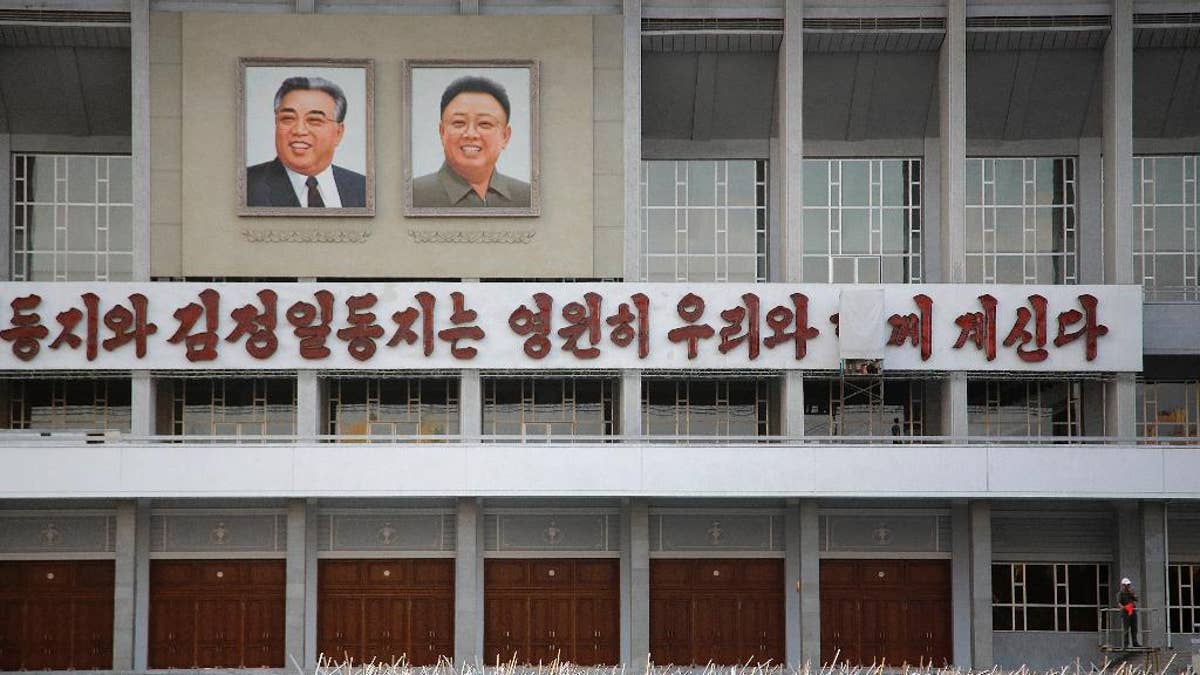
In this Tuesday, Sept. 15, 2015, photo, North Koreans gather in to prepare for events to be held during the 70th anniversary of the founding of their country's ruling party in October, in Pyongyang, North Korea. North Korea is already in high gear as it prepares to mark the 70th anniversary of the founding of its ruling party. Students and workers are being mobilized by the thousands to practice their parts in the grand show - some carrying wooden torches, others bouquets of red plastic flowers. (AP Photo/Wong Maye-E) (The Associated Press)
North Korea is called the “worst place on earth” for good reason. Thousands of people are tortured. Some North Koreans eat rodents to try to survive, and many starve anyway. In winter, they freeze. No one but the dictator has any true freedom, and no one is allowed to leave.
One person who understands that is Yeonmi Park. Now she’s 22. But for 16 years, she did amazing things “In Order to Live.” That is the title of her new book.
“We didn’t have enough food. I had to see dead bodies in the streets,” she says. Still, she and other North Koreans worshipped the late “Dear Leader,” Kim Jong Il, and his son, current leader and “Brilliant Comrade,” Kim Jong Un. Yeonmi told my TV studio audience that she believed Kim “could read my mind.”
When she was allowed to attend school, Yeonmi was taught to hate Americans. “We have to call all Americans ‘bastards’. My math problem was ‘you had four American bastards and you could choke two, how many American bastards are left to kill’? North Korea educates people that our suffering is because of these bad American bastards. Because of them, we are starving.”
But tiny bits of freedom can undermine a regime’s monopoly on thought. For Yeonmi, a black-market DVD of a Western film made a difference.
“I watched the movie ‘Titanic’ and I was shocked. Like, how could this kind of ridiculous film exist? I’d never seen people dying for love, except dying for the regime and the party.”
When Yeonmi was thirteen, she and her mother escaped into China, where they were kidnapped and sold into slavery: “Chinese government, if they catch us, will sell us back to North Korea, so we are very vulnerable in China. Chinese people, they know that.”
Sex traffickers took advantage of that vulnerability. “That’s what happened to both of us, my mother and me.” At the time, she didn’t know what sex was. “I didn't even know what kissing was.”
For two years, she was an abused captive. Then a Protestant mission helped her escape to South Korea by walking across the Gobi Desert.
South Korea “was another shock,” because she realized that freedom meant more than just having food -- it meant making her own decisions.
“I thought freedom meant wearing jeans or watching movies without worrying about getting arrested or executed,” says Yeonmi, “but what freedom meant in South Korea was you’ve got to think for yourself. They were asking me, ‘What do you think about this? What do you want to do with your life? What do you like to eat?’ I was so upset, like, ‘Tell me what to do, tell me what to wear!’”
South Koreans sneered at North Korean escapees. “Everybody told me I was a loser, because I am from communism country. I don’t have any knowledge of Western culture.”
Books became the next step in her journey. “I devoured books,” she says. “One day, I picked up a book called ‘Animal Farm.’ That changed my life. In that book, I saw myself. I saw my grandmother.”
The George Orwell allegory about how noble-sounding revolutions can turn into tyranny resonated with Yeonmi. “I could understand what really had happened to me and what really had happened to North Korea.”
Today she fears for family members who have been unable to escape: “My relatives, they're back in North Korea, and now Kim Jung Un, that fat guy doesn’t like me, so he’s using my relatives and denouncing me as a human rights propaganda puppet of the CIA. I’m hoping for the best -- that they are safe and one day I can see them again.”
Since today so many Americans call themselves “victims,” I asked Yeomni if she was a victim.
She said absolutely not. “I am not a victim. I am grateful I was born in North Korea and escaped ... I would go through the same journey to be free.”
I pushed back, asking, “Starving and being sold into sex slavery, you would do it again?”
“Yes,” she answered. “I would do that again to be free.”








































